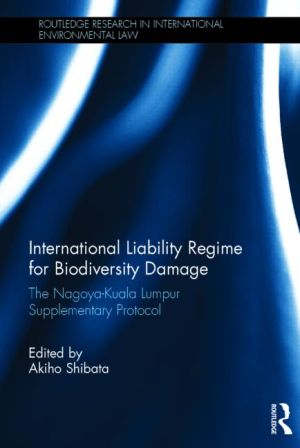
The Nagoya-Kuala Lumpur Supplementary Protocol on Liability and Redress to the Cartagena Protocol on Biosafety was adopted on 15 October 2010 in Nagoya, Japan.
The Supplementary Protocol provides international rules and procedures in the field of liability and redress relating to living modified organisms (LMOs) in response to damage caused by those LMOs to the conservation and sustainable use of biological diversity, taking into account risks to human health.
The adoption came at a time when doubts had been raised about the efficacy of multilateral environmental diplomacy after the collapse of the climate change negotiations in 2009 at Copenhagen, and indeed, the Supplementary Protocol was the first universal environmental treaty adopted since the Stockholm Convention on Persistent Organic Pollutants in 2001.
This book examines in depth the prelude to, the negotiation over, and the legal significance of the core provisions of the Supplementary Protocol focusing particularly on its incorporation of an administrative approach to liability for biodiversity damage, rather than a fully-fledged civil liability regime. Contributors to the volume include Co-Chairs of the negotiating group and the negotiators and advisors from some of the key negotiating Parties and the chapters will thus provide valuable insights into the environmental treaty-making process.
Topics covered include: legal structure of the Supplementary Protocol; the role of science and scientists in implementation process; the interaction of elements of administrative approach to liability with domestic legal systems and WTO law; and comparisons with the EU Environmental Liability Directive.
The book demonstrates the significant changes in the political configuration of environmental treaty negotiations which have come about in the twenty-first century and argues that the liability approach of the Supplementary Protocol illustrates the historical development of States' obligations under international law to address transboundary harm caused by activities within their jurisdictions or under their control.